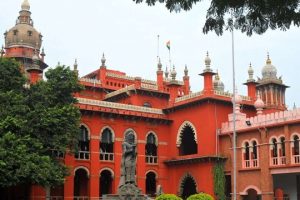Actor Sushant Singh Rajput’s death has highlighted several important points and gaps in the implementation of criminal law which are been debated widely. In this article, we are looking both at important legal developments so far and the laws around it.
UNNATURAL DEATH-INQUEST: SECTION 174 CRPC
Section 174 CrPC provides for investigation by police in all cases of sudden, unnatural or suspicious deaths. The police are empowered to investigate the apparent cause of death –
- In the case where a person has committed suicide
- Has been killed by another or by an animal or machinery or by accident,
- Has died under circumstances where there is a reasonable suspicion that some other person has committed an offence.
Unnatural death- homicidal, suicidal or accidental.
Section 174, 175 and 176 Cr.P.C. deal with inquiries into suicide or inquiries into sudden, violent or unnatural deaths.
The term, “Inquest” is commonly used to mean either an investigation by the police under section 174 Cr.PC, undertaken by them under the law to find out the cause of unnatural or suspicious death.
HOLDING AN INQUEST
The provision for the holding of an inquest is contained in Section 174 Cr.P.C. and the heading of the Section is Police to enquire and report on suicide etc.
Section 174 CRPC: Police to enquire and report on suicide, etc.
(1) When the officer in charge of a police station or some other police officer specially empowered by the State Government in that behalf receives information that a person has committed suicide, or has been killed by another or by an animal or by machinery or by an accident, or has died under circumstances raising a reasonable suspicion that some other person has committed an offence,
he shall immediately give intimation thereof to the nearest Executive Magistrate empowered to hold inquests,
and, unless otherwise directed by any rule prescribed by the State Government, or by any general or special order of the District or Sub-divisional Magistrate, shall proceed to the place where the body of such deceased person is, and
there, in the presence of two or more respectable inhabitants of the neighbourhood, shall make an investigation, and draw up a report
of the apparent cause of death, describing such wounds, fractures, bruises, and other marks of injury as may be found on the body, and stating in what manner, or by what weapon or instrument (if any), such marks appear to have been inflicted.
(2) The report shall be signed by such police officer and other persons, or by so many of them as concur therein, and shall be forthwith forwarded to the District Magistrate or the Sub-divisional Magistrate. The language of the aforesaid statutory provision is plain and simple and there is no ambiguity therein.
(3) When-
(i) the case involves suicide by a woman within seven years of her marriage; or
(ii) the case relates to the death of a woman within seven years of her marriage in any circumstances raising a reasonable suspicion that some other person committed an offence in relation to such woman; or
(iii) the case relates to the death of a woman within seven years of her marriage and any relative of the woman has made a request in this behalf; or
(iv) there is any doubt regarding the cause of death; or
(v) the police officer for any other reason considers it expedient so to do, he shall. subject to such rules as the State Government may prescribe in this behalf, forward the body, with a view to its being examined, to the nearest Civil Surgeon, or other qualified medical man appointed in this behalf by the State Government, if the state of the weather and the distance admit of its being so forwarded without risk of such putrefaction on the road as would render such examination useless.
(4) The following Magistrates are empowered to hold inquests, namely, any District Magistrate or Sub-divisional Magistrate and any other Executive Magistrate specially empowered in this behalf by the State Government or the District Magistrate.
An investigation under Section 174 is of limited in scope and is confined to the ascertainment of the apparent cause of death. It is concerned with discovering whether in a given case the death was accidental, suicidal or homicidal or caused by animal and in what manner or by what weapon or instrument the injuries on the body appear to have been inflicted.
MADRAS HIGH COURT ON SECTION 174 COMPLIANCE
Madras High Court: In a bench headed by Justice N. Anand Venkatesh directed the police to follow the procedure under Section 174 of CrPC [CRL.OP (MD). Nos.15515 of 2017 and 11764 of 2017 &11802 of 2018] in the following matter.
Case Citation
Manohari … Petitioner in Crl.O.P.No.15515/2017
S.Salomai Mary … Petitioner in Crl.O.P.No.11764/2017
Mrs.Kowsalya … Petitioner in Crl.O.P.No.11802/2018
Vs.
1.The District Superintendent of Police, Sivagangai District, Sivagangai.
2.The Inspector of Police, Poovanthi Police Station, Poovanthi, Sivagangai District.
3. The Inspector of Police, District Crime Branch, Sivagangai. … Respondents.
The Madurai Bench of the Madras High Court passed an order giving instructions to police with regard to the manner in which they will have to proceed in cases inquiring suicide or suspicious death and directed the Director-General of Police, Chennai, to sensitise police personnel on the procedure.
The relevant paras of the judgment:
The police, on receipt of information about the suspicious death, shall register an FIR under Section 174 of CrPC and thereafter proceed to the scene of the occurrence to prepare an Inquest Report and a rough sketch of the place of occurrence in the presence of neighbours. The police have now been directed to submit both documents before an Executive Magistrate to enable him to hold an independent inquest, the report of which shall be added to the investigation file.
In some of the cases, the victim approaches this Court by filing a petition under Section 482 of Cr.P.C seeking for a direction to transfer the Investigating Agency or seeking for a direction to the Police to file a Final Report and at that point of time, they come to know that the Investigating Officer had already closed the case and filed a Final Report before the Executive Magistrate. This Court found this practice to be erroneous and in violation of the provisions of the Code of Civil Procedure.
XXX XXX XXXX
In view of the above, this Court proceeds to answer the issue that was raised in this case as follows:
a) The Police on receipt of information about the suspicious death shall register an F.I.R under Section 174 of Criminal Procedure Code and thereafter he can proceed to the scene of occurrence and prepare an Inquest Report.
b) When a Police Officer receives information to the effect that the deceased is lying in a serious condition, he can rush to the scene of occurrence, in order to see if he can save the victim and if in case the victim does not survive he can proceed to prepare the Inquest Report in accordance with Section 174(1) of Cr.P.C, and thereafter register an F.I.R under Section 174 of Cr.P.C.
The Inquest Report has to describe the wounds, fractures, bruises and other marks of injuries as are found on the dead body and state in what manner, or by what weapon or instrument [if any], such marks appear to have been inflicted.
c) The Police Officer shall also prepare a Rough Sketch of the place of occurrence.
d) The Inquest Report and the Rough Sketch shall be prepared in the presence of two or more respectable inhabitants of the neighbourhood.
e) The object of the Inquest Proceedings is merely to ascertain whether a person has died under unnatural circumstances or an unnatural death and if so, what is the cause of death. The Inquest Report need not contain details such as how the deceased was assaulted or who assaulted him or under what circumstances he was assaulted and these facts are not within the scope of Inquest Proceedings and they fall within the scope of the investigation to be conducted by the Police.
f) immediately after the preparation of the Inquest Report in accordance with Section 174(1) of Criminal Procedure Code, the Police shall submit the same to the Executive Magistrate under Section 174(2) in order to enable the Executive Magistrate to hold an independent inquest as contemplated under Section 174(4) of Criminal Procedure Code.
g) The Executive Magistrate on completion of the inquest shall submit a report to the Police and such report shall form part of the investigation conducted by the Police and the Police shall collect details from such report and conduct the investigation accordingly.
h) The power of the Police to investigate is in no way stopped or curtailed or interfered with by the inquest held by the Executive Magistrate and the freedom of the Police to proceed with the investigation will be left untouched.
i) The Police on the conclusion of the investigation shall file a Final Report under Section 173(2) of Cr.P.C only before the jurisdictional Magistrate and not before the Executive Magistrate. This will apply, in both cases, whether the Final Report is a positive report or is a Closure Report.
j) If in case the Police proceed to file a Closure Report, the victim shall be entitled to be served with an R.C.S notice in order to enable him to file a protest Petition before the concerned Magistrate.
k) On such protest Petition being filed, the concerned Judicial Magistrate shall act in accordance with the law laid down by the Hon’ble Supreme Court in Vinay Tyagi .Vs. Irshad Ali, reported in [2013 (5) SCC 762].
CONTINUE READING: For a Cognizable Offence-Preliminary Enquiry or FIR: Supreme Court Rules in Lalita Kumari Judgement
LEGAL DEVELOPMENTS IN THE MATTER
July 25, 2020: FIR IN BIHAR POLICE STATION: Sushant Singh’s Rajput’s father had lodged the complaint at Rajiv Nagar police station in Patna against Rhea Chakraborty and six others, including her family members, accusing them of abetting the actor’s suicide.
“The Bihar Government transferred a case with which it had no jurisdiction to investigate, to CBI instead of the Mumbai Police which is the legal position. The Supreme Court is seized of the issue pursuant to the transfer petition filed by Rhea Chakraborty.” as said by Satish Maneshinde Chakraborty’s lawyer
August 13, 2020:NO OBJECTION TO CBI INQUIRY: In the latest development available through Hindustan Times media, actor Rhea Chakraborty told the Supreme Court through her written submission on Thursday that she has no objection if it transfers the investigation into the death of her boyfriend and fellow actor Sushant Singh Rajput to the Central Bureau of Investigation in the exercise of its powers under Article 142 of the Constitution.
Laws related to the functioning of CBI
During the period of World War II, a Special Police Establishment (SPE) was constituted in 1941 in the Department of War of British India to enquire into allegations of bribery and corruption in the war-related procurements. Later on, it was formalized as an agency of the Government of India to investigate into allegations of corruption in various wings of the Government of India by enacting the Delhi Special Police Establishment (DSPE) Act, 1946. In 1963, the Central Bureau of Investigation (CBI) was established by the Government of India with a view to investigating serious crimes related to Defence of India, corruption in high places, serious fraud, cheating and embezzlement and social crime, particularly of hoarding, black-marketing and profiteering in essential commodities, having all-India and inter-state ramifications. CBI derives its legal powers to investigate crime from the DSPE Act, 1946.
Can CBI take over the investigation of a criminal case registered by the State Police?
Yes, it can, in the following situations:
- The concerned State Government makes a request to that effect and the Central Government agrees to it (Central Government generally seeks comment of CBI before deciding upon the request of the State)
- The State Government issues notification of consent under section 6 of the DSPE Act and the Central Government issues notification under section 5 of the DSPE Act.
- The Supreme Court or High Courts orders CBI to take up such investigations.
What types of Crime CBI investigate today?
CBI has grown into a multidisciplinary investigation agency over a period of time. Today it has the following three divisions for investigation of crime:-
(i) Anti-Corruption Division – for investigation of cases under the Prevention of Corruption Act, 1988 against Public officials and the employees of Central Government, Public Sector Undertakings, Corporations or Bodies owned or controlled by the Government of India – it is the largest division having presence almost in all the States of India.
(ii) Economic Offences Division – for investigation of major financial scams and serious economic frauds, including crimes relating to Fake Indian Currency Notes, Bank Frauds and Cyber Crime.
(iii) Special Crimes Division – for investigation of serious, sensational and organized crime under the Indian Penal Code and other laws on the requests of State Governments or on the orders of the Supreme Court and High Courts. The laws under which CBI can investigate Crime are notified by the Central Government under section 3 of the DSPE Act.
Who exercises supervision over CBI?
The superintendence of CBI related to the investigation of offences under the Prevention of Corruption Act, 1988 lies with the Central Vigilance Commission (CVC) and in other matters with the Department of Personnel & Training (DOPT) in the Ministry of Personnel, Pension & Grievances of the Government of India.
Can CBI suo-moto take up investigation of any crime anywhere in the Country?
No. As per section 2 of the DSPE Act, CBI can suo-moto take up investigation of offences notified in section 3 only in the Union Territories. Taking up investigation by CBI in the boundaries of a State requires prior consent of that State as per Section 6 of the DSPE Act.
The Central Government can authorize CBI to investigate such a crime in a State but only with the consent of the concerned State Government.
The Supreme Court and High Courts, however, can order CBI to investigate such a crime anywhere in the country without the consent of the State.
Is it necessary to mention one’s identity for giving information/complaint to CBI?
Yes, it is. In accordance with the guidelines formulated by the Central Vigilance Commission, India, CBI does not entertain anonymous/pseudonymous information/complaint. Having said this, the informant/complainant can, however, always request to keep their identity secret. CBI takes all the necessary care to ensure that identity of such persons is kept secret.
August 10, 2020: UNFAIR MEDIA TRIAL PLEA RAISED IN AFFIDAVIT: Actress Rhea Chakraborty, who has been accused of abetting actor Sushant Singh Rajput’s suicide, has filed a new affidavit in the Supreme Court stating unfair trial by media. The actress is one of the prime accused in an FIR filed by Sushant’s father KK Singh, along with her parents and brother Showik Chakraborty.
The matter is now reserved for judgment.
August 13, 2020: SUSHANT SINGH RAJPUT DEATH: SUPREME COURT TO HEAR ANOTHER PIL SEEKING ‘UNIFIED’ CBI INVESTIGATION: A bench comprising Chief Justice S A Bobde, A S Bopanna and V Ramasubramanian would hear on Thursday the PIL filed by BJP leader and lawyer Ajay Agrawal regarding Sushant Singh Rajput’s death. In his additional affidavit, the lawyer said, a responsible person like Narayan Rane, who is a former Chief Minister of Maharashtra, is alleging that it is a clear cut case of murder. “Media trial is going the whole day on all electronic news channels. This all should be put to rest by a unified CBI investigation of this case, which is a highly professional agency and well equipped to deal with such type of high profile and controversial case,” it said.
Supreme Court: Order dated 11.08.2020 in the transfer petition
Image Curtsey: Logo of CBI















Add Comment